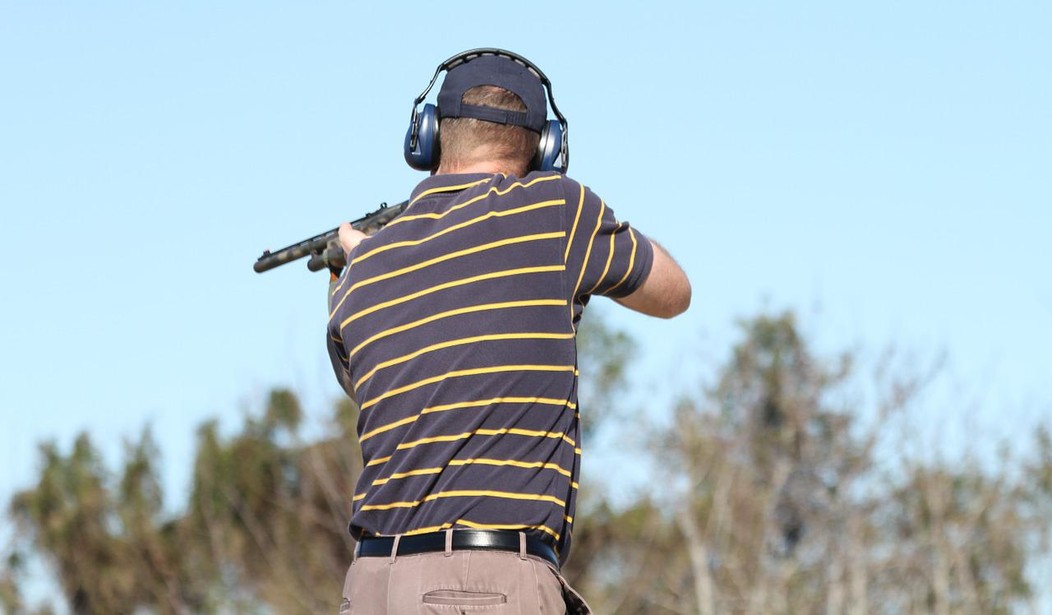One week ago California Gov. Gavin Newsom signed AB 2571 into law. The bill ostensibly is aimed at prohibiting gun companies “from advertising or marketing any firearm-related product, as defined, in a manner that is designed, intended, or reasonably appears to be attractive to minors,” but according to several gun rights groups including the California Rifle & Pistol Association, Second Amendment Foundation, and Gun Owners of California the bill will cripple youth shooting sports programs in the state.
That’s why they’ve filed a challenge to the new law in federal court, arguing that Newsom’s new law has got to go; not on Second Amendment grounds, but for violating the First Amendment.
The First Amendment fully protects pure political, ideological, and educational speech. Content- and viewpoint-based restrictions on such speech are especially repugnant to the People’s right to free speech. Indeed, “above all else, the First Amendment means that the government has no power to restrict expression because of its message, its ideas, its subject matter, or its content.”
The First Amendment also protects non-misleading commercial speech promoting lawful products or services. That protection is at its highest when the products or services are themselves independently protected by other fundamental rights. And the sale of firearms, ammunition, and firearm parts and accessories is not only legal, but also constitutionally protected by the Second Amendment.
Section 22949.80 imposes a content- and speaker-based restriction on protected speech that is viewpoint discriminatory, that serves no legitimate government interest (directly or indirectly), and that is both facially overbroad and far more extensive than necessary to achieve any purported interest. It thus violates Plaintiffs’ free speech and commercial speech rights.
The First Amendment also protects the right to peaceably assemble and associate. The right to assemble often merges with the right to free expression. For “[e]ffective advocacy of both public and private points of view, particularly controversial ones, is undeniably enhanced by group association.”
… Section 22949.80 effectively curtails the rights to assemble and associate because it directly prohibits advertising, marketing, or arranging for the placement of advertising or marketing promoting various firearm-related events and programs, where Plaintiffs peaceably and lawfully assemble and associate with each other and members of the public. It also impermissibly restricts pro-gun (but not anti-gun) organizations from promoting membership in or financial support of their organizations in ways that might be deemed “attractive to minors.”
… What’s more, AB 2571 (codified as § 22949.80), clearly violates wellestablished free speech precedents of the U.S. Supreme Court, making the law frivolous on its face. This may very well have the effect of forcing the California Attorney General’s office to defend this statute by making legal contentions that are not warranted by existing law, or even abandoning the defense and enforcement of this statute altogether
One of the plaintiffs in the case is the publisher Junior Sports Magazines, which produces a magazine called Junior Shooters that, according to the complaint, “answers questions young and beginner shooters have about firearm safety, guns and gear, protective gear, and more. The magazine also provides information on how to get started in the shooting sports, shooting events, youth shooting organizations and clubs, as well as scholarships available to youth shooters.”
Clearly that periodical would run afoul of California’s new law, given that’s intention is to promote the youth shooting sports. It’s hard to do that without making it appealing, or without talking about specific firearms and other gear that youth getting into the shooting sports might need. Yet, under Newsom’s law every copy of Junior Shooters sold or even discovered in the state of California would make Junior Sports Magazines eligible for a $25,000 fine and would open the company up to lawsuits from private parties.
If it’s that bad for publications, you can imagine the impact the new law will have on the existing shooting programs for youth across the state. And yet, the complaint notes that, while the stated intention behind the legislation is to protect children from being exposed to firearms marketing, the state carved out a massive exemption for the entertainment industry.
AB 2571 defines “firearm industry members” in two ways: (A) A person, firm, corporation, company, partnership, society, joint stock company, or any other entity or association engaged in the manufacture, distribution, importation, marketing, wholesale, or retail sale of firearm-related products. (B) A person, firm, corporation, company, partnership, society, joint stock company, or any other entity or association formed for the express purpose of promoting, encouraging, or advocating for the purchase, use, or ownership of firearm-related products that does one of the following: (i) Advertises firearm-related products. (ii) Advertises events where firearm-related products are sold or used. (iii) Endorses specific firearm-related products. (iv) Sponsors or otherwise promotes events at which firearm-related products are sold or used.
AB 2571 thus does not bar members of the (politically popular) book, movie, television, and video game industries from “advertising, marketing, or arranging for the placement of an advertising or marketing communication concerning any firearm-related product” even though the author of AB 2571 expressly identifies the “slick advertising” of such products in children’s books, cartoons, and video games as sources of “shameless” advertising of “weapons” to children.
AB 2571 does, however, apply to (politically unpopular) organizations formed to promote and preserve the Second Amendment rights to keep and bear arms, organizations that offer competitive and recreational shooting programs, businesses that offer shooting skills courses and/or firearm-safety training, and gun show promoters, as well as firearms manufacturers and retailers.
Honestly, California lawmakers banning Grant Theft Auto V would be just as much a violation of the First Amendment as banning Junior Shooters or any other marketing material that could be deemed to be enticing to youth (which, by the way, could include everything from firearm-branded t-shirts and hats to company logos at sponsored shooting sports events). But the fact that California Democrats seem to be targeting youth shooting sports specifically, if not explicitly, is evidence that this new law isn’t about reducing firearm access to youth. It’s about trying to turn a rising generation against their right to keep and bear arms.
Chuck Michel, head of the California Rifle & Pistol Association, told Bearing Arms shortly after the lawsuit was filed that “Gavin Newsom has made no secret of his intention to murder the freedom loving ‘gun culture’ by stopping gun shows, zoning out ranges and gun stores, banning guns, and making it impossible to exercise your rights,” adding, “this is part of the effort; to make this generation of gun owners the last.”
Given the amount of new gun control laws signed by Newsom in recent days, we may very well see additional court challenges in short order. This is a great start, however, and I hope the courts will swiftly step in and reject California’s stifling of our First Amendment rights in pursuit of its anti-Second Amendment agenda.








Join the conversation as a VIP Member